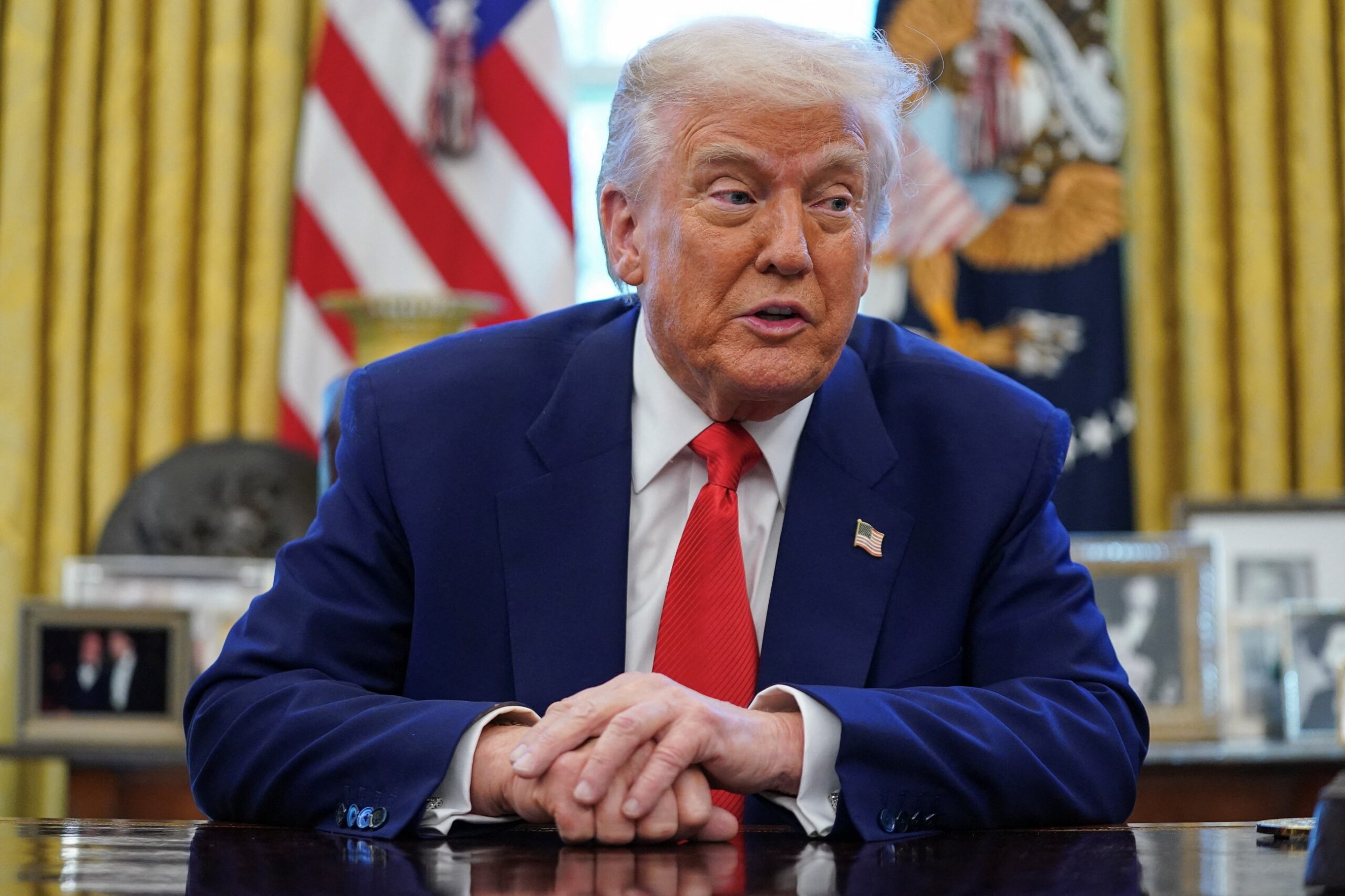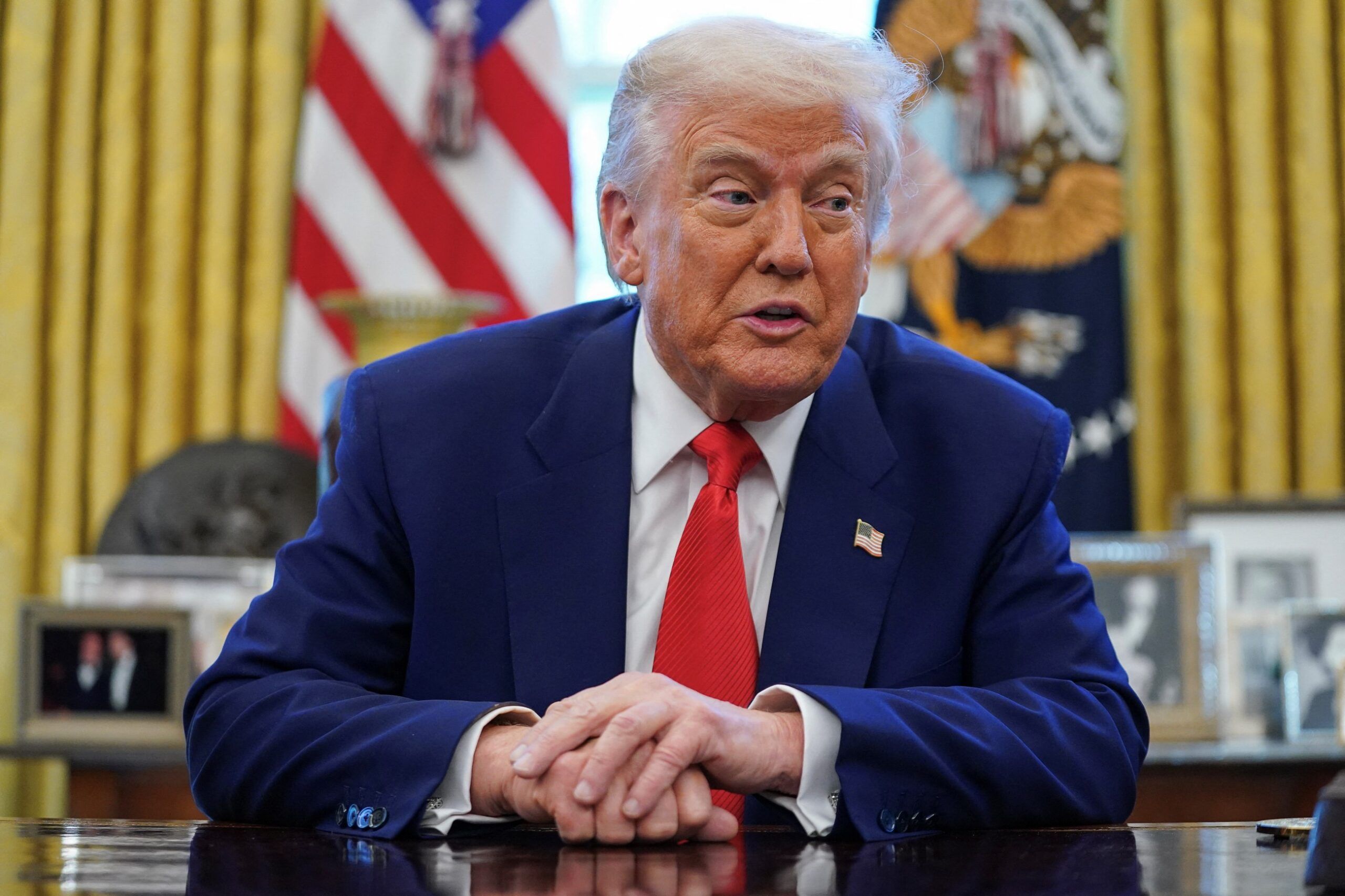Markets rally as Trump delays 50% EU tariffs

Global markets climbed on Monday and the euro rallied after US President Donald Trump kicked his threat to slap 50% tariffs on European Union goods into July, marking another temporary trade policy reprieve.
MSCI’s broadest index of world shares rose 0.2%. The pan-European stocks index, last up .9%, recovered to where it was trading before Trump on Friday unexpectedly called for 50% tariffs on European goods, saying negotiations with the region had become too sluggish.
On Sunday, Trump reversed course, pushing the deadline for tariffs to July 9 from June 1, after European Commission President Ursula von der Leyen said the 27-nation bloc needed more time to produce a deal.
Trump’s latest policy moves were a reminder to investors how quickly circumstances could change. Analysts have pointed out that investors are shifting their money out of US markets to Europe and Asia as they price in a possible US recession and a consequent global slowdown.
European stock markets rallied Monday after US President Donald Trump delayed 50-percent tariffs on the European Union until July 9 to give more time for negotiations.
Trump provided some relief Sunday by saying he was putting off the EU tariffs until July 9 after a “very nice call” with European Commission President Ursula von der Leyen, adding that officials will “rapidly get together and see if we can work something out”.
Von der Leyen vowed to move “swiftly” to reach a deal.
On Monday the Paris CAC 40 index closed 1.2 per cent higher while the Frankfurt gained 1.7 per cent.
London and Wall Street were closed for holidays, but US futures were higher while Asia struggled.
Analysts said the latest unexpected salvos from the White House highlighted the uncertain path investors are having to walk owing to the president’s volatile policy pivots.
“The stock market seems to dance to Trump’s tune: first a threat, then a pullback, quickly followed by a rebound as speculative investors anticipate a concession from the US president,” said Jochen Stanzl, chief market analyst at CMC Markets trading platform.
“This morning’s confirmation of such expectations reinforces the so-called ‘Trump Pattern’, which is increasingly seen as a successful strategy for risk-tolerant investors.” The dollar remained under pressure after dropping Friday.
Oil prices fluctuated and ended flat, with producers’ group OPEC+ expected this week to continue to raise production despite low prices, after pressure from Trump.
– Steel saga – Investors have also fretted over Trump’s economic policies, with US long-term government bond yields surging last week over concerns that his tax relief and spending cuts plan − which was approved by the House − will increase the US debt pile.
Traders are also looking ahead to Wednesday’s release of minutes from the Fed’s earlier May policy meeting, hoping for an idea about the central bank’s views on the economy.
That is followed by the Fed’s preferred measure of inflation − US personal consumption expenditures − on Friday.
In company news, shares in Seoul-listed Samsung rose almost one per cent despite Trump’s threat of tariffs on smartphone makers.
In Tokyo, Nippon Steel rallied as much as 7.4 per cent after Trump threw his support behind a new “partnership” between the Japanese firm and US Steel. It ended up 2.1 per cent. US Steel soared 21 per cent in New York on Friday.
In Europe, shares in steel giant ThyssenKrupp surged 8.7 per cent after the firm said it planned a major overhaul that will split the vast conglomerate into several standalone businesses.
Swedish carmaker Volvo rose more than two per cent after it announced it would cut 3,000 jobs as part of a $1.9 billion cost-cutting plan.
Separately, Canada’s main stock index surged on Monday, after US President Donald Trump extended the deadline for European Union trade talks, providing a brief respite to investor concerns over his erratic trade policies.
The Toronto Stock Exchange’s S&P/TSX composite index was up 0.6% at 25,024.83 points.
On Sunday, Trump backed away from his threat to impose 50% tariffs on EU imports to July 9 from June 1, after European Commission President Ursula von der Leyen said the 27-nation bloc needed more time to produce a deal.
However, despite global market sentiment steadying after new trade deals with the UK and China earlier this month, Trump’s sweeping tariffs and pauses since April 2 continue to generate uncertainty among investors and companies.
Agencies
